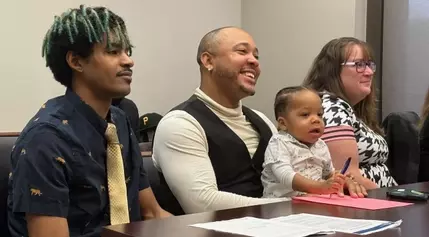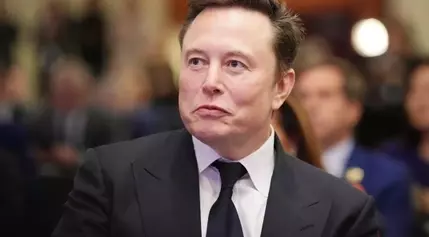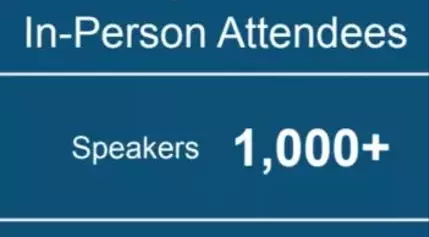News

Food Tank's Dispatch from the U.N. Climate Change Conference is a special newsletter series running daily during COP29. This article delves into the crucial role of smallholder farmers in addressing the climate crisis and ensuring global food security.
Empowering Smallholder Farmers: The Linchpin of Sustainable Development
Smallholder Farmers: The Unsung Heroes of Global Food Production
Smallholder farmers are the backbone of global food production, nourishing communities around the world. These dedicated individuals, numbering over 500 million, are the custodians of traditional, regenerative, and sustainable agricultural practices. Their deep connection to the land and their communities sets them apart, as they recognize their responsibility to the Earth as a family member, not just a resource to be exploited.However, the rise of industrialized agriculture and monocultures has often overshadowed the invaluable knowledge and practices of these smallholder farmers. Wara Iris, a young Indigenous leader from Bolivia's Aymara community, eloquently expresses the need to revive this traditional wisdom, stating, "We don't just see Earth as a resource; she is our family, and we treat her that way. Unfortunately, with monocultures and industrialization, traditional knowledge like ours is often hidden or forgotten. It's crucial to bring it back now."Bridging the Funding Gap: Investing in Smallholder Farmers for a Sustainable Future
The discussions at COP29 have highlighted a critical issue: the lack of meaningful financial investments in smallholder and family farmers. Despite their crucial role in nourishing the world, these farmers are often left out of the climate finance conversation. Panelists at the Action on Food Hub Pavilion revealed that smallholders only receive about 0.3 percent of climate funding—less than a third of a single cent per dollar.This funding gap is even more alarming when considering the broader climate finance landscape. A new economic report has revealed that poorer nations will need trillion per year in financing by 2030—five years sooner than previously anticipated. As one economist pointed out, this sum is achievable with a serious commitment, but the costs will only increase the longer we wait to address this pressing issue.Innovative Financing Solutions for Smallholder Farmers
Addressing the funding gap for smallholder farmers requires a multifaceted approach. Panelists at the Food and Ag Pavilion discussed the importance of microfinance and small grants as an initial step, providing short-term cash aid to build sustainable livelihoods in agriculture. However, they emphasized the need to pair these financial instruments with financial education and policy support to ensure long-term success.Furthermore, the importance of cross-sector collaboration and coordination was highlighted. The launch of the Hemispheric Fund for Resilience and Sustainable Agriculture by the Inter-American Institute for Cooperation on Agriculture (IICA) exemplifies this approach. By bringing together funding from multiple nations, this initiative aims to support high-impact projects that recognize the interconnected nature of the climate crisis and global health challenges.As Afshan Khan, Assistant Secretary-General of the United Nations and Coordinator of the Scaling Up Nutrition (SUN) Movement, eloquently stated, "We cannot achieve nutrition targets without a consideration of climate, and we cannot achieve climate targets without transforming food systems for healthier diets. We need to work in a way that mutually reinforces progress towards both targets."The Disappearing Climate Fund: A Missed Opportunity?
The conference was expected to unveil a flagship new climate fund that would direct at least billion to mostly developing countries, funded by contributions from fossil-fuel-rich companies and countries. However, this plan seems to have disappeared, leaving many attendees concerned.The proposed fund faced some controversy, with some donor countries allegedly worried about being asked to contribute "too much" money, while some climate advocates felt it was not robust enough and amounted to greenwashing. The fate of this fund remains unclear, as it is uncertain whether it is being cancelled entirely or replaced with a different approach.Regardless of the outcome, the disappearance of this potential funding source is a concerning development. Combating climate change requires a collective effort, and any fracturing of global agreements would be a significant setback. As Prime Minister Gaston Browne of Antigua and Barbuda pointed out, "For decades, wealthy nations pledged 0 billion annually to support vulnerable countries. Yet these promises have largely gone unfulfilled."The Urgent Call to Action: Investing in Smallholder Farmers for a Sustainable Future
The message from COP29 is clear: we cannot solve the climate crisis without the active participation and support of smallholder farmers. These resilient individuals are the custodians of sustainable agricultural practices and the key to ensuring global food security. Meaningful financial investments in smallholder and family farmers are essential to building a future that nourishes both people and the planet.As the conference progresses, it is crucial that policymakers and global leaders heed the call to action and prioritize the needs of these unsung heroes. By unlocking the potential of smallholder farmers through targeted funding, financial education, and cross-sector collaboration, we can pave the way for a more sustainable and resilient future for all.




































































































